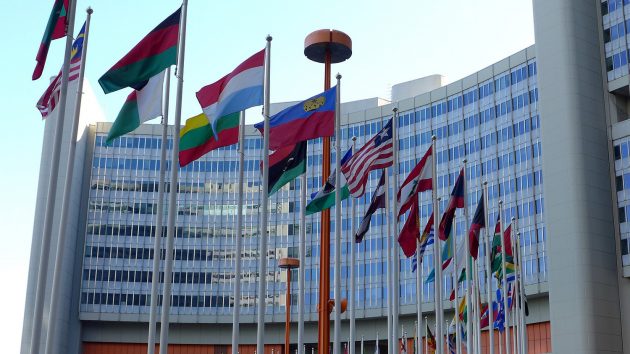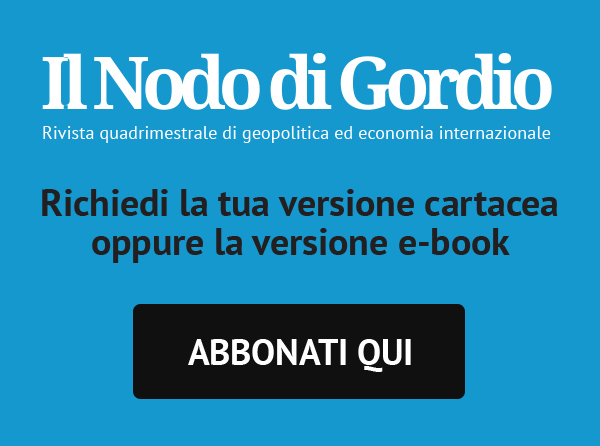
Abstract
Non capita spesso sentire che l’individualismo possa essere considerato un fattore dirompente del sistema democratico, dato che è proprio la democrazia il regime per eccellenza che esalta il ruolo del individuo nel processo politico e non solo. Eppure questa relazione fraterna, spesso e volentieri, maschera uno degli aspetti più subdoli dell’individualismo, che con la promozione democratica possono creare egoismo, passività, irresponsabilità ed un’alienazione dal processo politico. E’ proprio questa relazione che verrà analizzata nel seguente articolo, cercando di coglierne i benefici, le difficoltà e di proporre valide alternative che possano rafforzare, allo stesso tempo, la democrazia ed il ruolo dell’individuo nel processo democratico.
Just more than 70 years ago the Universal Declaration of Human Rights was signed. First of this kind, the Declaration represented a brake-trough with the past as it aimed to put at the center the individual as the sole and ultimate holder of power. It put an end to the destructive totalitarian regimes of the 20th century and promoted the idea of democracy as the regime under which the rights of the individual would be protected and legitimized. Clearly at that time, most of the countries that ratified the Declaration where everything but democracies, nevertheless this was a clear sign of what the world should expect from the West in the upcoming decades. It is not by chance if soon afterwards the United States launched a campaign for democratic development abroad, and coronated itself as ‘The’ democratic country.
Over the time democracies prospered around the world, from South Africa to Poland and from South Korea to Chile; at the same time democracies had the lowest level of inequality and the highest level of individual development. However, this did not mean that the disparity between the rich and the poor decreased, but it meant that the poor’s opportunities to find an occupation and to sustain themselves increased.
As the time passed and so the memories of the WWII, and with the generational change in place, the idea of individualism was being promoted and in some cases brought to the extremes, think about the right to decide one’s own religion, sex, and in general unconstrained power over one’s own body. Now, it is not my intent to argue here whether this is correct or not, as this is a delicate issue and I will rather distance myself from this pandora box, what I am pursuing here is to argue how far the idea of individualism has gone.
Today, more than ever individualism has revealed its setbacks, its negative effects and how it is damaging democracy and its image. People in the West have become passive and egoistic actors, they alienate themselves from political life and crave only for their own interest, showing no solidarity whatsoever. This issue came to surface multiple times now, with the immigration crisis, climate change and most recently with the outbreak of the COVID-19 pandemic.
The 21st century or the ‘century of uncertainty’, as I like to call it, has revealed more and more that the once thought most stable democracies gave birth to the most passive and individualist societies. Examples are Trump, Brexit, anti-EU sentiments, just to name a few. People have forgotten that liberty comes with responsibility and that, as Hannah Arendt famously wrote, ‘we are a plurality and that is a fact’ where each and every one matters at the same time as others do.
The past years have been particularly revealing, first the immigration crisis showed the unwillingness of countries to open-up their borders, and at the same time it fueled resentment from the population among cultural and economic lines which culminated in a surge of populist support across the European continent. Second, climate change calls for a global responsibility towards the way we treat our planet, and it requires every one of us to take the necessary actions to reduce global warming. Last but not least, the most recent crisis posed by the COVID-19 pandemic revealed how low and at times absent our level of responsibility is. It showed, particularly in the United States a long established democracy, how endemic the issue of individualism is and now the country is faced with the biggest threat to its democracy.
Of course there are other issues at stake, such as globalization, cultural backlash and the failure of the democratic party to address these issues, but individualism once hailed by democracy turned-out to be its biggest enemy, as Tocqueville suggested.
What have been the effects of individualism on democracy?
Individualism, let alone by its nature, is the opposite of democracy. By putting at the center the individual and its self-realization the other and the community is neglected and left aside. Democracy, on the other hand requires communication, collective participation and action. Individualism is instrumental to democracy to the extent in which it creates an individual consciousness in relation to the external world.
In practical terms, isn’t it puzzling that our most valued and potent right of political action, the vote, is being less and less used, and our personal engagement in political activities over the last 20 years has been at a historical low level?!
It appears that once something is gained, such as liberty, freedom of speech and of the press, there is no possibility of losing it. The reality shows the opposite, and rightly so. Democracy, by its nature, is a very unstable system which requires to be constantly controlled and balanced, especially by the population, against any power which may hamper its proper functioning and independence.
Democracy demands responsibility for the survival of the system, for the collective realization and well-being; while for individualism responsibility finds its accomplishment with self-realization, sometimes at the expense of others.
Taking again the United States as the best example of this betrayal of democracy, we see how under the Trump administration the role of democracy in shaping American foreign and domestic policy has failed. Trump, a narcissistic, selfish and authoritarian president, has done more damage to the US democracy than any other American president has. His continuous attacks towards the press and the scientific knowledge destroy the opportunity for an open and constructive popular debate. Further, it distorts reality alienating the individuals from political life. His aggressive populist attitudes have reduced people from actors to spectators, who unconsciously are witnessing and contributing to the decline of US democracy in exchange of an elusive individualism that will protect them from any real threat. Trump challenged the idea of a pluralist society, at the basis of a healthy democracy, he built walls, deported people, put in place entry bans from different countries and divided the American society. In the realm of foreign policy he went even further, he pursued a policy of isolationism threatening the multilateral way of doing business, abandoned international organizations and at times joined authoritarian leaders as well as right-wing movements.
The tipping point was reached with his way of handling the pandemic, not only his irresponsibility killed more than 220.000 Americans, making the US the hardest hit country, but it legitimized people to challenge any political claim that would limit their personal freedom. In other words, people went their way. They started to buy guns, refused to wear masks and set ready to fight the ‘invisible enemy’. Of course this is only one side of the reality, the dramatic one I would say, but as an optimist I believe this is the time in which an opportunity has arisen, with the power to strengthen democracy by attributing the proper responsibility to the individual.
What has to be done?
First, we need to assign people their proper responsibility. This would mean developing the idea that every political action has an implication for the well-being of the society. The state should have the role to empower and remind people that they have the ultimate power, and that they can change the course of action. However, this does not mean imposing a compulsory voting system, which assumes that people are passive actors; but rather creating a conscious of collective responsibility by engaging society in different administrative decisions. As it is always the case, education is the seed from which could this sentiment could grow, that is why we need to invest in creating a system in which critical thinking and civil action needs to develop, especially in a post-truth world.
In the past few months we have probably witnessed the biggest campaign that calls American citizens to embrace their right of vote. A call not only coming from the Democratic party but also from ‘popular’ individuals such as actors, sport players, activists and so forth. As a matter of fact, the US should expect its highest voter turnout since 1908.
Second, we must realize that the challenges ahead of us require global action, and there is no place for individualism, for passive, egoistic and selfish actions. The individual matters more than anything, as long as its actions follow a collective idea. History has shown that when confronted with challenges that go beyond the ability of one individual to address them, this ‘forces’ the individual to join its strength with other individuals for a common cause. It is in these situations that our democracies are fostered and pluralism is increased.
At the end of the day it is like a Revolution, it may start from an individual action but it is the collective power that is able to create change.
Vasyl Suchevan
Già laureato in Studi Internazionali presso l’Università di Trento e attualmente iscritto al Master in Studi Europei ed Internazionali (MEIS).
© RIPRODUZIONE RISERVATA


















